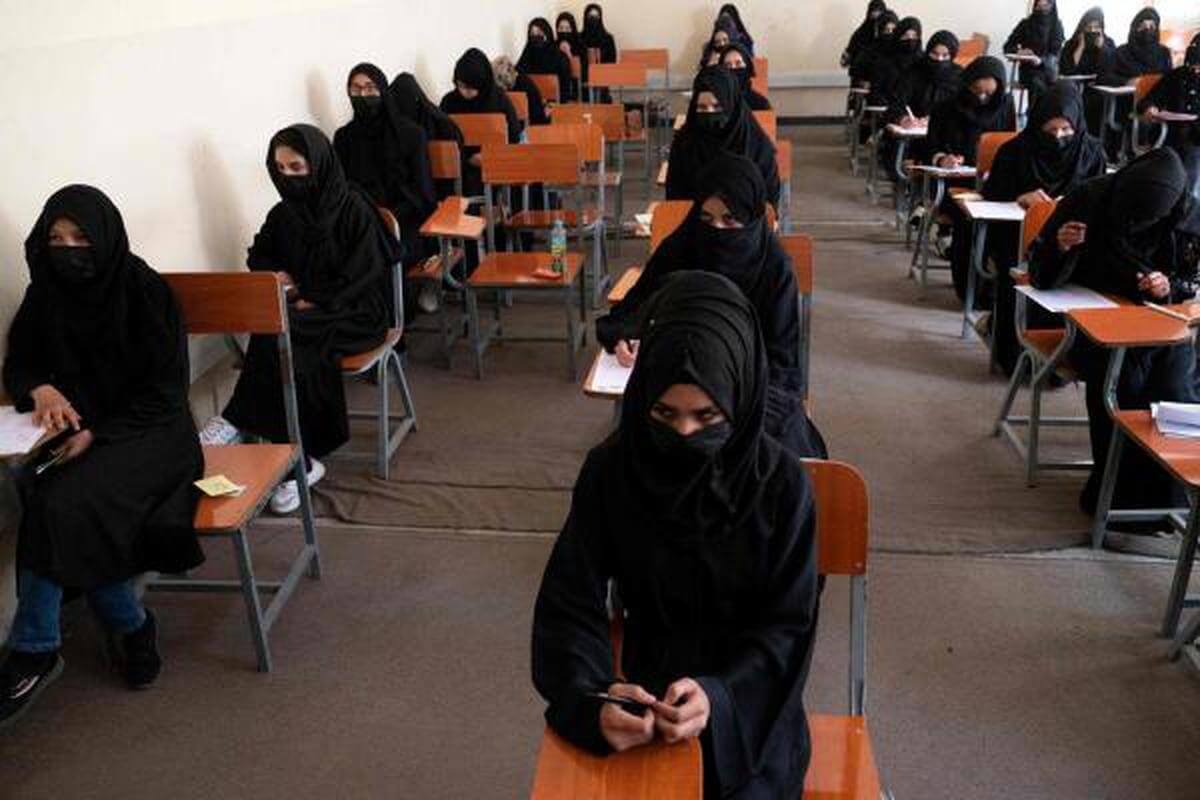Afghanistan Govt bans Taliban women from attempting university entrance exams
Mon 30 Jan 2023, 00:04:25

On Saturday, January 28, the Taliban ‘caretaker’ government in Afghanistan issued the latest decree against women. The decree bars women from attempting university entrance exams for the 2023 school year which are slated to be held in February. The letter with instructions has been sent to private universities and schools.
Girls cannot register for the exams until further notice, according to a notice sent to the universities by the Taliban Ministry of Higher Education.
In order to avoid punishment, the statement states that private universities must adhere to the ruling regime’s laws and rules, and not violate the latest decree that bans the admission of female students to private universities.
This latest decree comes after global outrage and condemnation against the Islamist group’s diktat banning female students from universities and schools until further notice. Reportedly, Nida Mohammad Nadeem, Afghanistan’s Minister of Higher Education, has asserted that the ban is necessary to stop ‘gender mixing’ in universities and because he believes some subjects being taught go against Islamic principles.
Following the visit of a delegation led by the highest-ranking female official in the UN, Deputy Secretary-General Amina Mohammed, U.N. humanitarian chief Martin Griffiths and the heads of two significant international aid organizations also visited Afghanistan this week. The aim of their visits was to attempt to undo the Taliban’s oppression of women, including
their ban on Afghan women working for domestic and international humanitarian organizations.
their ban on Afghan women working for domestic and international humanitarian organizations.
It is notable that on 24th December 2022, all domestic and international non-governmental organizations (NGOs) in Afghanistan were ordered by the Taliban government to forbid the presence of female employees at work.
The Taliban banned women from working in NGOs alleging that they are not wearing the Islamic headscarf correctly. The Taliban government claimed that it had received “serious complaints” that women working in NGOs were not following the Islamic dress code properly.
A day later, three big international NGOs announced that they are suspending their work in Afghanistan. These aid groups, Save the Children, the Norwegian Refugee Council, and CARE, suspended their work in light of the ban on women.
Notably, since the Taliban government came to power in Afghanistan in 2021, women’s rights there are being restricted. Women are prohibited from holding important positions in all spheres of life and are required to adhere to the strict Islamic dress code. They are also excluded from employment and education. Women are also barred from entering parks and gyms and from traveling without a male relative.
Recently, the Taliban government instructed the country’s female clothing retailers to mask the mannequins showing off the latest fashions. The mannequins with their heads covered have come to represent the Taliban’s puritanical rule over Afghanistan.
No Comments For This Post, Be first to write a Comment.
Most viewed from Edu and Jobs
AIMIM News
Latest Urdu News
Most Viewed
May 26, 2020
Do you think Canada-India relations will improve under New PM Mark Carney?
Latest Videos View All
Like Us
Home
About Us
Advertise With Us
All Polls
Epaper Archives
Privacy Policy
Contact Us
Download Etemaad App
© 2025 Etemaad Daily News, All Rights Reserved.



.jpg)


























